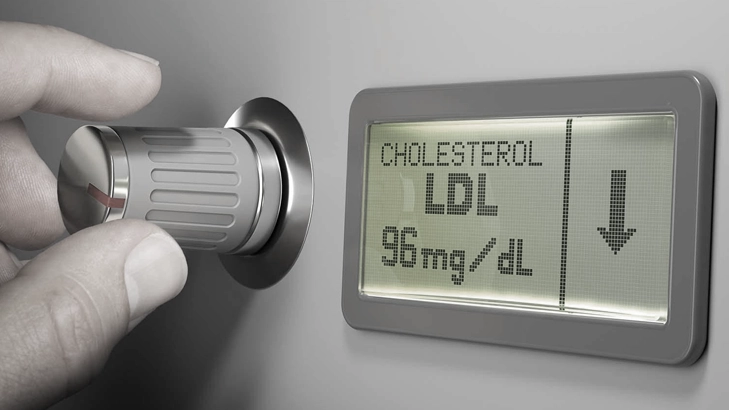At TrustedTablets, we understand that a family history of heart disease can raise concerns about your cardiovascular health. Managing cholesterol levels is a critical step in reducing your risk of heart attack or stroke, especially if heart disease runs in your family. Drawing on expert insights from Harvard Health, this guide explains cholesterol goals for those with a family history of heart disease and how TrustedTablets can support you with high-quality supplements, lifestyle resources, and professional guidance.
Why Cholesterol Matters with a Family History of Heart Disease
Cholesterol is a waxy substance essential for building cell membranes, hormones, and vitamin D, but too much “bad” cholesterol can lead to plaque buildup in arteries, increasing the risk of heart disease. If you have a family history of premature heart disease—defined as a father or brother affected before age 55, or a mother or sister before age 65—you’re at higher risk for cardiovascular issues. This risk is amplified if you have familial hypercholesterolemia (FH), a genetic condition affecting about 1 in 250 people, which causes very high low-density lipoprotein (LDL) cholesterol levels from a young age.
At TrustedTablets, we empower you to take control of your cholesterol with personalized strategies and evidence-based products to protect your heart.
Understanding Cholesterol Goals
Cholesterol levels are measured through a lipid panel, which includes:
- LDL (“Bad” Cholesterol): Contributes to plaque buildup in arteries, raising heart attack and stroke risk.
- HDL (“Good” Cholesterol): Helps remove excess cholesterol from the bloodstream, reducing cardiovascular risk.
- Triglycerides: A type of fat that, when elevated, can increase heart disease risk.
- Total Cholesterol: The sum of LDL, HDL, and a portion of triglycerides.
Your cholesterol goals depend on your overall risk profile, including family history, lifestyle factors (e.g., smoking, high blood pressure), and conditions like diabetes or existing heart disease. Harvard Health outlines the following LDL goals:
- High-Risk Individuals: If you have a family history of premature heart disease, existing cardiovascular disease, or FH (LDL ≥ 190 mg/dL), aim for an LDL below 70 mg/dL. This aggressive target reduces the risk of heart attack or stroke by 50% or more.
- Moderate Risk: If you have a family history but no other major risk factors, an LDL of 100–130 mg/dL may be acceptable, though lower is better.
- General Population: For those without heart disease or significant risk factors, an LDL below 100 mg/dL is ideal.
For HDL, aim for at least 40 mg/dL (men) or 50 mg/dL (women), with levels above 60 mg/dL offering extra protection. Triglyceride levels should ideally be under 150 mg/dL.
If you have FH, your LDL may be 190 mg/dL or higher (or ≥ 160 mg/dL in children), significantly increasing your risk. Early screening and treatment are crucial, as untreated FH can lead to heart attacks in men by age 50 or women by age 60.
How TrustedTablets Supports Your Cholesterol Goals
TrustedTablets offers a comprehensive approach to managing cholesterol, especially for those with a family history of heart disease. Here’s how we can help:
1. Heart-Health Supplements
Our pharmacy stocks third-party-tested supplements to support cholesterol management:
- Plant Sterols and Stanols: These compounds, found in fortified foods and supplements, block cholesterol absorption in the gut, lowering LDL by up to 10%. Try our plant sterol capsules or spreads.
- Omega-3 Fatty Acids: Omega-3s from fish oil or algae-based supplements reduce triglycerides and inflammation, supporting heart health. Choose from our high-potency, sustainably sourced options.
- Soluble Fiber: Psyllium husk or oat bran supplements increase fiber intake, helping flush cholesterol from the body.
- Red Yeast Rice: A natural statin alternative that may lower LDL, though it should be used under medical supervision due to potential interactions.
2. Lifestyle Resources
Harvard Health emphasizes that lifestyle changes are key to managing cholesterol, particularly for those with a family history. TrustedTablets provides:
- Dietary Guides: Adopt a heart-healthy diet rich in fruits, vegetables, whole grains, and unsaturated fats (e.g., olive oil, avocados, fatty fish). Our dietitian-approved guides highlight foods like oats, nuts, and soy to lower LDL.
- Exercise Plans: Regular moderate-intensity exercise, like brisk walking for 30 minutes three times a week, boosts HDL and lowers LDL. Download our free exercise trackers to stay motivated.
- Stress Management Tools: Chronic stress can elevate cholesterol. Explore our herbal stress-relief supplements, such as ashwagandha or chamomile, and guided meditation resources.
3. Professional Guidance
Our team connects you with pharmacists and dietitians to:
- Review your lipid panel results and tailor a plan to meet your cholesterol goals.
- Assess medications, including statins (e.g., atorvastatin, simvastatin) or non-statin options like ezetimibe (Zetia), which blocks cholesterol absorption, or PCSK9 inhibitors for FH.
- Screen for FH if you have persistently high LDL despite a healthy lifestyle. We can refer you to genetic testing services or FH specialists via the Family Heart Foundation.
4. Screening and Monitoring Tools
TrustedTablets offers at-home cholesterol testing kits to track your lipid levels conveniently. Regular screening is vital, especially for children (ages 9–11 and 17–21) with a family history of FH or premature heart disease. We also provide resources to monitor other risk factors, like blood pressure and blood sugar, to create a complete heart health profile.
Recognizing Familial Hypercholesterolemia (FH)
If your LDL is consistently 190 mg/dL or higher (or 160 mg/dL in children), FH may be the cause. Other signs include:
- Family history of early heart disease (before age 55 in men, 65 in women).
- Cholesterol deposits (xanthomas) on tendons (e.g., Achilles, knuckles) or eyelids (xanthelasmas).
- Early heart attacks or strokes in family members.
FH is caused by genetic mutations (e.g., in LDLR, APOB, or PCSK9 genes), and each first-degree relative has a 50% chance of inheriting it. TrustedTablets encourages genetic testing for FH, as it can guide treatment and prompt screening for family members. Treatment often involves high-intensity statins, ezetimibe, or advanced therapies like PCSK9 inhibitors (e.g., alirocumab, evolocumab) or inclisiran (Leqvio).
Lifestyle Tips to Reach Your Cholesterol Goals
Harvard Health recommends the following strategies, which TrustedTablets supports with products and resources:
- Eat a Heart-Healthy Diet: Focus on plant-based foods (e.g., beans, lentils, oats), limit saturated fats (red meat, butter), and avoid trans fats. Try our plant sterol-fortified spreads or fiber supplements to enhance cholesterol-lowering effects.
- Exercise Regularly: Aim for 150 minutes of moderate exercise weekly. Our fitness trackers and omega-3 supplements support your active lifestyle.
- Maintain a Healthy Weight: Losing 5–10% of body weight can lower LDL and triglycerides. Our dietitians offer personalized weight management plans.
- Quit Smoking: Smoking lowers HDL and damages arteries. TrustedTablets provides nicotine replacement therapies and cessation support.
- Limit Alcohol: Excessive alcohol raises triglycerides. Stick to moderate intake (up to one drink daily for women, two for men).
When to See a Doctor
Consult a healthcare provider if:
- Your LDL remains high despite lifestyle changes, suggesting FH or other issues.
- You experience symptoms like chest pain, shortness of breath, or fatigue, which could indicate heart disease.
- You have a family history of early heart disease or FH, warranting earlier or more frequent cholesterol screening.
TrustedTablets can connect you with specialists for advanced testing, such as coronary calcium scans or genetic screening, to assess your risk.
Why Choose TrustedTablets?
TrustedTablets is your trusted partner in achieving heart-healthy cholesterol levels, especially with a family history of heart disease. We offer:
- High-Quality Products: Third-party-tested supplements like plant sterols, omega-3s, and fiber, sourced from reputable manufacturers.
- Expert Support: Access to pharmacists and dietitians for personalized cholesterol management plans.
- Convenient Testing: At-home lipid panels and heart health monitoring tools to track progress.
- Holistic Approach: Combining supplements, lifestyle resources, and professional guidance for optimal results.
Take Control of Your Heart Health Today
With a family history of heart disease, proactive cholesterol management is essential. TrustedTablets provides the tools, supplements, and support you need to reach your cholesterol goals and reduce your risk. Explore our heart health collection, schedule a consultation, or order an at-home cholesterol test today to start your journey to a healthier heart.



